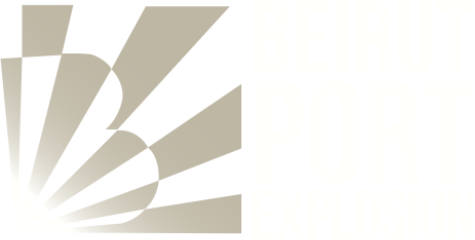
Who is Joseph Skaf and what is the story behind his letter!
When the Mv Rhosus docked at Beirut’s port in late 2013, Colonel Joseph Skaf was the Chief of the Anti-Narcotics and Money Laundering Section in the Customs Administration. By the end of February, Skaf sent a warning letter to the customs administration noting that there are dangerous cargo onboard of a ship docked at Beirut’s port, stressing that the ship is loaded with ammonium nitrate, which is hazardous material used in explosives. Addressing the Customs Administration and Manifest department, he recommended that both bodies cooperate with the security authorities to move the ship away from the port’s docks to the breakwater and to keep it under the supervision of the security forces.
Thereafter, Skaf was relocated to Beirut airport as the chief of the Drug Enforcement Administration until his retirement in 2016. He died in Mach 2017 under suspicious circumstances as there were two conflicting autopsy reports. One of the two reports indicated that his death was an accident, and the other confirms that it was deliberate due to bruises found on the deceased’s head.
To this day, the case remains unsolved.
Herein lies the importance of Skaf’s letter because it was the first of several warnings about the ammonium nitrate on board Rhosus. The ship remained docked at Beirut’s port for more than three months without any warning from any security or administrative apparatus about the risks posed by the cargo. Skaf’s letter was followed by other correspondences that went back and forth between top customs and port officials, members of the judiciary, and the Lebanese army, but most of them didn’t mention the nature of the chemicals as Skaf did, except for one letter sent by the ship’s agent.
Following Skaf’s letter, the head of the Manifest Department at the time, Badri Daher, sent a letter to the Beirut Police Officer to ask the maritime manifest about the reason behind not mentioning the ammonium nitrate on the Unified list that is usually provided to the security services following the customs’ detection. Following the head of the division, Colonel Pierre El-hajj’s refusal to accept the referral; the port authorities re-sent the letter to the customs administration. Customs Official, Ibrahim Chamseddine received and referred the letter to the maritime manifest that justified its position by stating that the ship’s crew delivered the manifest later, and the customs pretext of law and its circulars require mentioning only unauthorized or monopolized goods while the ammonium nitrate is considered restricted materials that require special authorization from the council of ministers. However, when the ship loaded with the ammonium nitrate entered the port of Beirut as transit and the nitrogen grade was undetermined, Badri Daher decided not to fine the ship 400.000 Lebanese Lira and disregarded the violation of the law.
The risk here is that the ammonium nitrate wasn’t mentioned on the Unified list, which means that the security services were unaware of the nature of the cargo for almost three months, and only the manifest department knew about it all this period.
By the end of March, the ship was moved to the breakwater, but it was unclear whether the customs administration complied with Skaff’s recommendations to put the ship under the supervision of the security services or not, especially that the report of the shipping control authority, affiliated with the Directorate of Land and Maritime Transport, issued in April 2014, claims that the ship was moved because its owner did not take any steps to repair it. The report doesn’t refer to Skaff’s letter or highlight its content. It should be noted that Skaff’s request to move the ship from the dock wasn’t out of fear of a possible explosion, but mostly for fear of possible clandestinely unloading.
.
.
